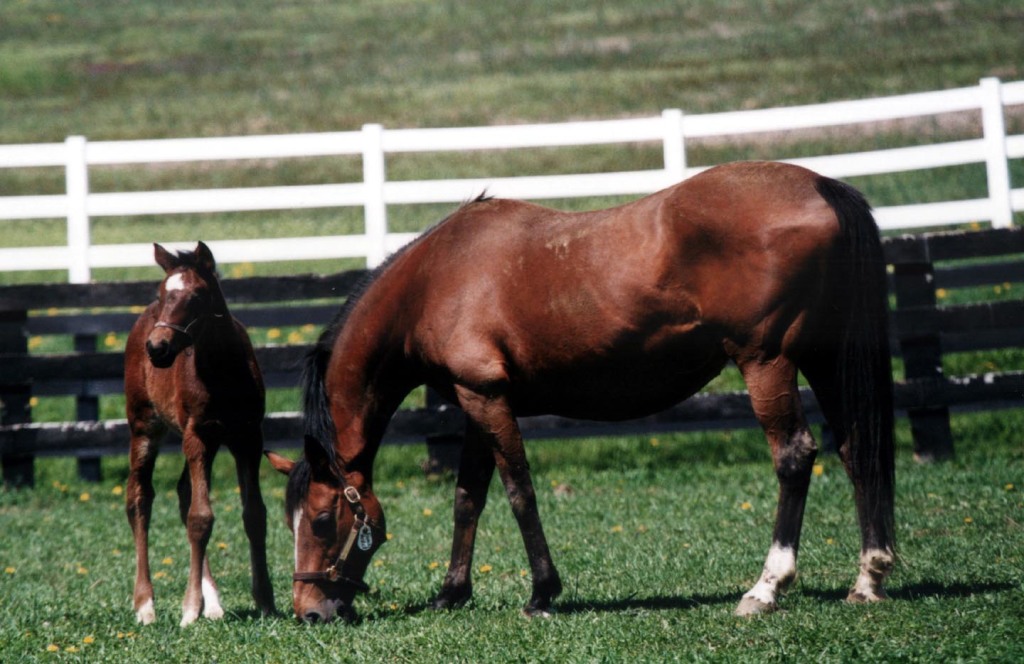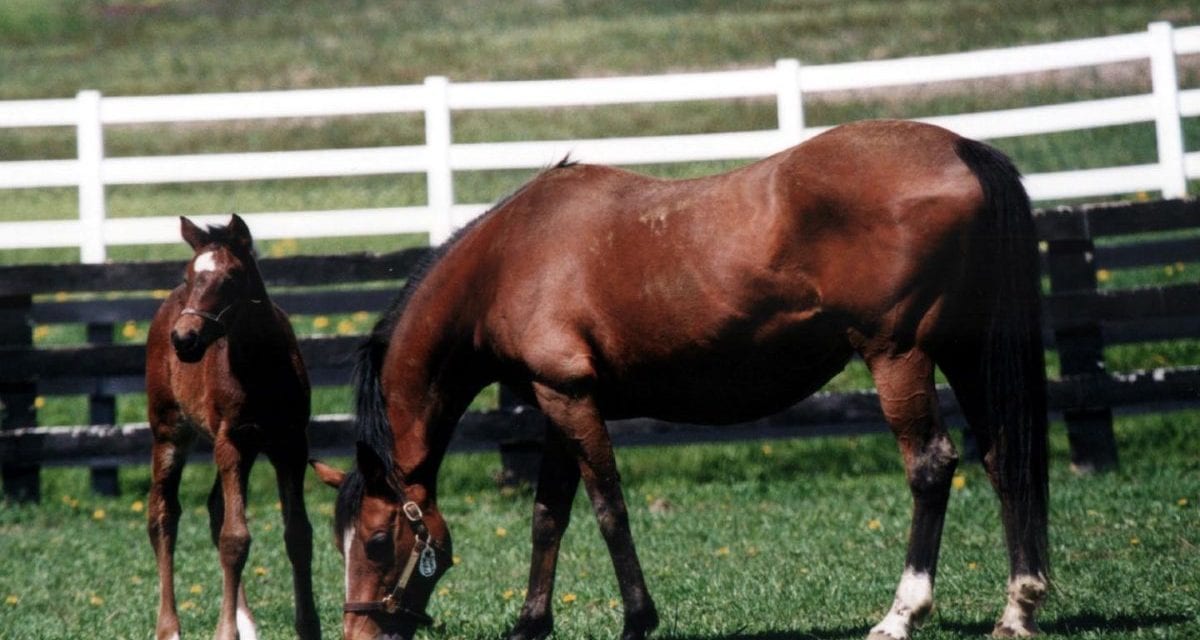
A pair of breeding issues played a large role in yesterday’s Racing Commission meeting. Photo by Laurie Asseo.
by Frank Vespe
Breeding issues played a central role in yesterday’s monthly meeting of the Maryland Racing Commission, and as the man said, “I have good news, and I have bad news…”
First, the bad news.
In the face of slower-than-anticipated revenue from slot machines, the Commission’s breeding task force recommended a pair of measures that would slow expenditures from the Maryland-bred fund through the end of the year at cost to some in the industry. The two measures would reduce purses of Maryland-bred stakes, of which there are seven remaining on the schedule, to $50,000 each; and eliminate the 10 percent Maryland-sired bonus paid to breeders of Maryland-breds who finish in the money in Maryland.
The Commission approved the changes.
“The problem is, the program is so successful, and the revenue stream was not going to meet projections,” explained David Hayden, who is a member of the task force and also sits on the state Racing Commission. “Rather than get in a big shortfall at the end of the year, we decided to act now. We just wanted to bring things in line and make sure we don’t have a situation where we’d be overdrawn.”
The reduction in stakes purses will save, Hayden said, more than $300,000, since most Maryland-bred stakes this year have carried $100,000 purses. He estimated that the elimination of the Maryland-sired bonus would save another $400,000.
The rest of the bonus structure — including 30 percent bonuses to the owners and breeders of Maryland-breds running at home that finish in the money and a 10 percent bonus to the owners of Maryland stallions whose offspring finish in the money in Maryland — will remain intact.
“We felt it was better to reduce the stakes and reduce the value of the stakes and eliminate the 10 percent stallion bonus, as opposed to trying to say, ‘Now we can only give a 22.5% owner bonus,'” Hayden said. “A lot of thse horses were sold on the premise that, ‘Hey, in Maryland, I’ve got a 30 percent owner bonus coming my way.’ You don’t want to go back and say now you’re only getting 18 percent.”
Hayden said that the changes will apply through the end of 2015 and that the Commission would continue to evaluate the breeding incentive program to ensure it is achieving maximum success and efficiency. A number of positive factors — including higher than anticipated handle during Laurel’s winter and Pimlico’s spring meets, the possibility of solid handle during the upcoming summer meet, and the scheduled opening of the massive casino at National Harbor in Prince George’s County next year — might permit the return of the scuttled Maryland-sired bonus and/or an increase in stakes purses.
The Commission also learned of an early-stages proposal to hold a Maryland-bred day at Laurel Park, perhaps as early as August or September. The day would include at least three of the year’s remaining Maryland-bred stakes — the clustering of which required Commission approval under the state’s somewhat arcane laws — and five other races restricted to Maryland-breds.
“The goal is to have a day devoted to Maryland-bred horses,” said Cricket Goodall, executive director of the Maryland Horse Breeders Association (MHBA). “We’re not going to put on a day that’s not going be successful.”
Goodall said that the breeding task force had developed the proposal, which she said the MHBA’s board supported — with one caveat.
“Our board has approved the concept pending agreement of all parties,” she said.
The purses for Maryland-bred stakes come from the Maryland-bred Fund. Under the proposal, Goodall said, her group would put up $200,000 to pay the purses for the non-stakes races on the day. In return, the other parties — the Maryland Thoroughbred Horsemen’s Association (MTHA) and the Maryland Jockey Club, which owns the track — would “put up their handle,” allowing the MHBA to recoup the money it spent on purses. The day would also need support from the horsemen at the entry box and from the track in promoting the event.
“The management at the track seems to be partial to events and kind of makes events around stakes,” Goodall explained, “so there was a general sense to try it, the restricted races, to make it a big event, a real Maryland-flavored kind of day, sort of a prep for Maryland Million (in October).”
Though Maryland Million races are restricted to Maryland-sired, rather than Maryland-bred horses, there is substantial overlap in those populations.
The MTHA’s board of directors will hold its annual membership meeting tomorrow at Laurel Park and is expected to discuss the proposal. The organization has historically been cool towards restricted racing, but recent changes to the board, and in the state’s racing community overall, may have dimmed that opposition. That the purse account would be held harmless — no money in or out — would presumably make the sell easier.














With the death of Not for Love, the list of Maryland sires is very weak, without one “Class A” stud amongst them. The “Maryland Million” races should simply be converted to races for Maryland-breds, rather than just Maryland-sired. Last year, in fact, the Maryland Million Classic (and one other stake on the card, if memory serves) had too few Maryland-sireds entered, so they entered the race up to Maryland-breds.
Let’s be honest, Horseman – there’s not an A class stud in the mid-Atlantic after the retirement of NfL. There’s been discussion of opening up Md. Million but I don’t think there’s much appetite for it as long as the card gets filled. Last year they added the “Md-breds OK if entries too light” provision, which makes some sense and which they used to fill the Classic, but I suspect no further changes are likely, at least for now.
Retirement of Not for Love, I should say. Confusing him with Lion Hearted, who recently passed from a heart attack after covering a mare.